For 1990-2009 cars only
Exhaust Gas Recirculation (EGR) Valve Inspection
Caution: If the EGR valve is hot, wear gloves in order to prevent personal injury.
Tools Required
J 23738-A Hand Vacuum Pump
- Start the engine.
- Run the engine to normal operating temperature.
- Place one finger on the exhaust gas recirculation (EGR) valve diaphragm and accelerate the engine. The diaphragm (2) should move.
- Disconnect the vacuum hose from the EGR valve.
- Using a hand vacuum pump, apply 27 kPa (8 in. Hg) of vacuum to the EGR valve with one finger on the diaphragm. The diaphragm should move and the engine should run rough and the engine may stall.
- Check for carbon deposits in the valve which may cause a restriction in flow. The restriction may be small enough so that the engine may not stall during step 5, yet large enough to cause a DTC to set. Check the EGR pressure transducer if the valve passes the above test. Replace the EGR valve if it fails the above test. Refer to Exhaust Gas Recirculation Valve Replacement .
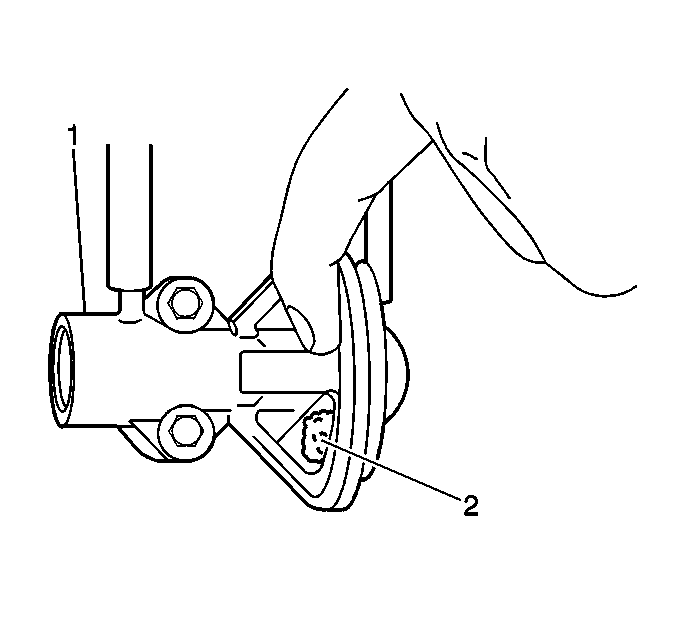
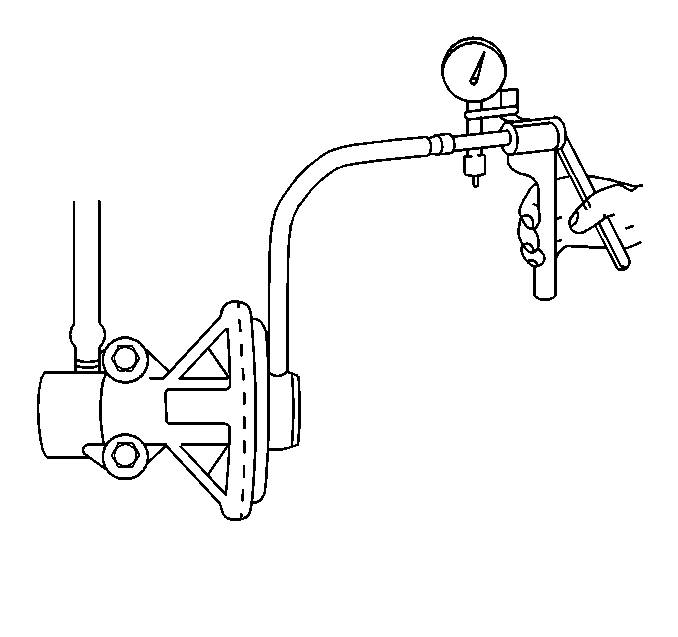
Exhaust Gas Recirculation (EGR) Back Pressure Transducer Inspection
Tools Required
J 23738-A Hand Vacuum Pump
- Check the filter (1) for any contamination and damage. Clean the filter with compressed air.
- Remove the three vacuum hoses from the Exhaust Gas Recirculation (EGR) back pressure transducer.
- Place one finger over the vacuum tube of the EGR back pressure transducer (1).
- Blow air (2) into the opposite tube. Air should pass through the filter part of the pressure transducer.
- Connect a hand vacuum pump to tube P (1) and plug tube Q (2) with your finger.
- Blow air (3) into tube A (4) while applying vacuum to tube P (1) at the same time. You should be able to obtain vacuum on the vacuum pump gauge.
- Stop blowing air into tube A (4). The vacuum pump gauge should read zero.
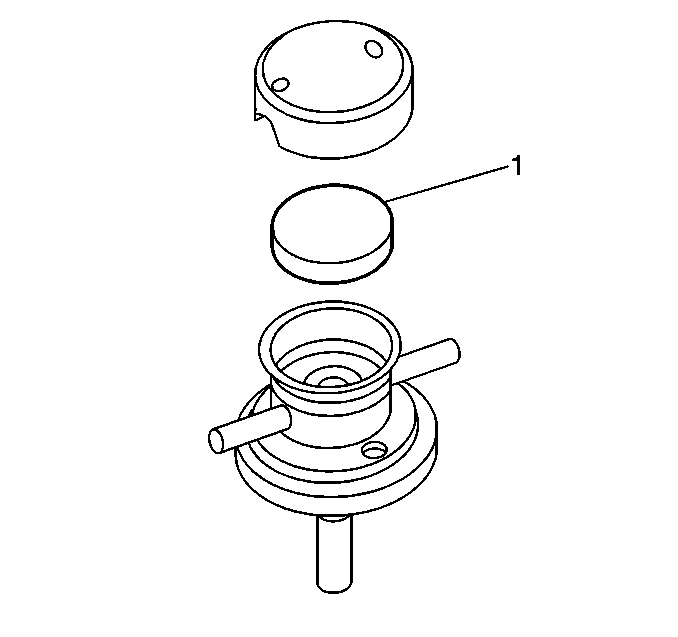
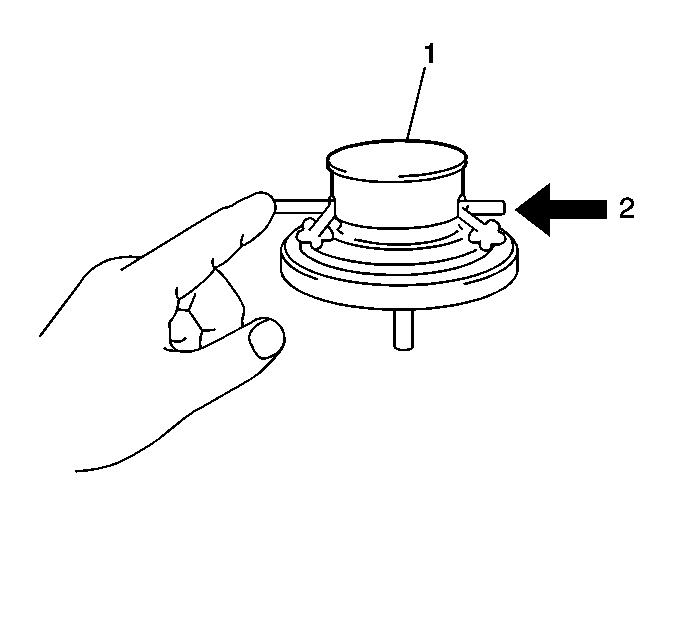
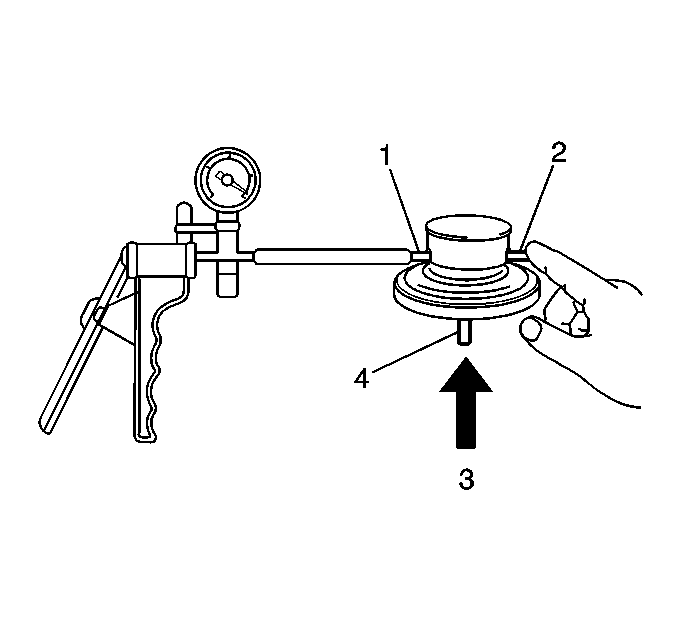
Replace the EGR back pressure transducer if the transducer fails either test. Refer to Exhaust Gas Recirculation Back Pressure Sensor Replacement .
Exhaust Gas Recirculation (EGR) Solenoid Vacuum Valve Inspection
Tools Required
J 39200 Digital Multimeter
- Disconnect the two vacuum hoses from the EGR solenoid vacuum valve (2).
- Disconnect the EGR solenoid vacuum valve electrical connector.
- Blow air into tube A (2). The air should exhaust from tube B (1).
- Connect battery voltage to the EGR solenoid vacuum valve.
- Blow air into tube A (2). The air should exhaust from the filter and not from tube B (1).
- Connect the EGR solenoid vacuum valve electrical connector.
- Connect the two vacuum hoses to the EGR solenoid vacuum valve.
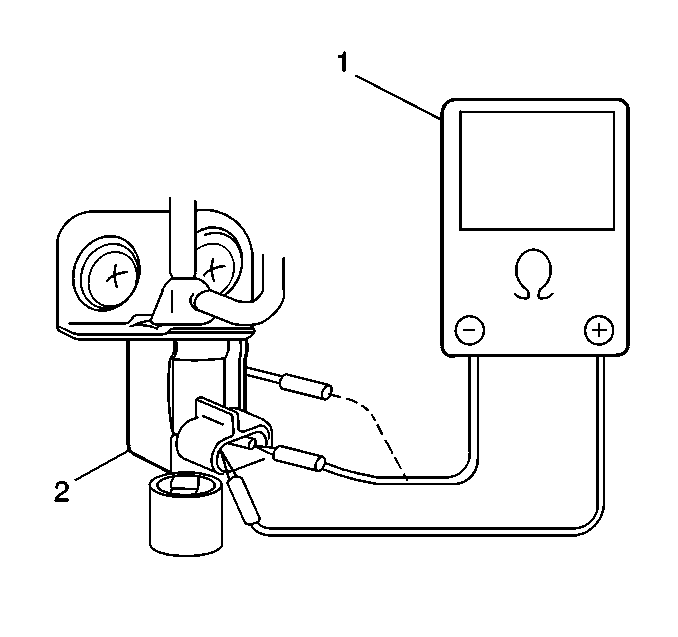
Measure
| • | Measure the resistance (1) of the EGR solenoid vacuum valve terminals (valve side). The resistance should be 33-39 ohms at 20°C (68°F). |
| • | Replace the EGR solenoid vacuum valve If the resistance is not within the specification. Refer to Exhaust Gas Recirculation Solenoid Vacuum Valve Replacement . |
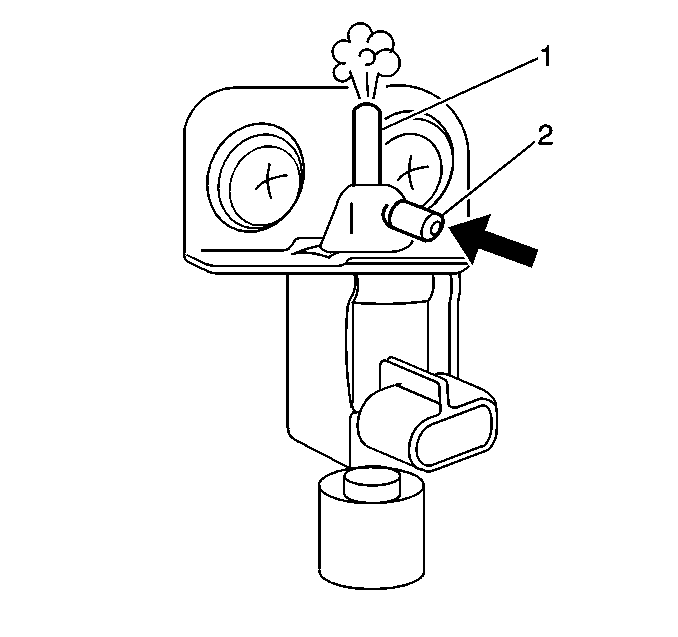
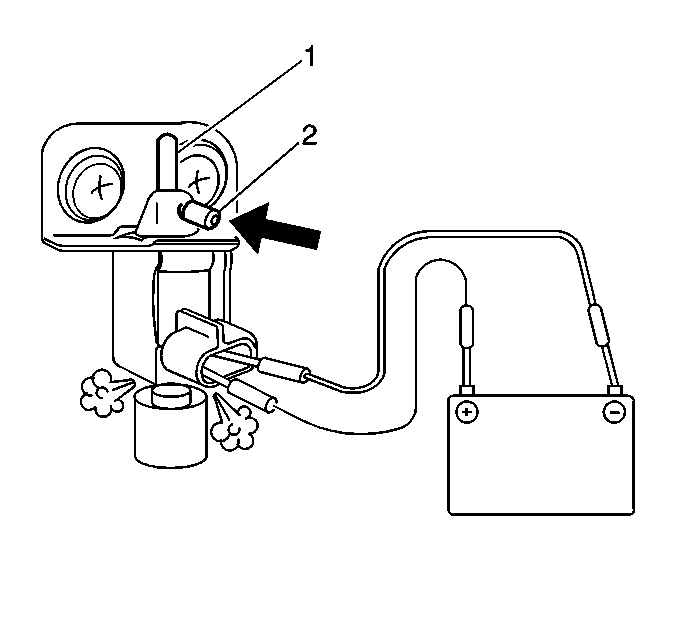
Replace the EGR solenoid vacuum valve if the valve does not pass both flow checks. Refer to Exhaust Gas Recirculation Solenoid Vacuum Valve Replacement .
Exhaust Gas Recirculation (EGR) Bypass Valve Inspection
Tools Required
J 39200 Digital Multimeter
- Disconnect the three vacuum hoses from the exhaust gas recirculation (EGR) bypass valve (2).
- Disconnect the EGR bypass valve electrical connector.
- Blow air into tube B (2). Air should exhaust from tube C and not from tube A (1).
- Connect battery voltage to the EGR bypass valve.
- Blow air into tube B (2). Air should exhaust from tube A (1) and not from tube C (3).
- Connect the EGR bypass valve electrical connector.
- Connect the three vacuum hoses to the EGR bypass valve.
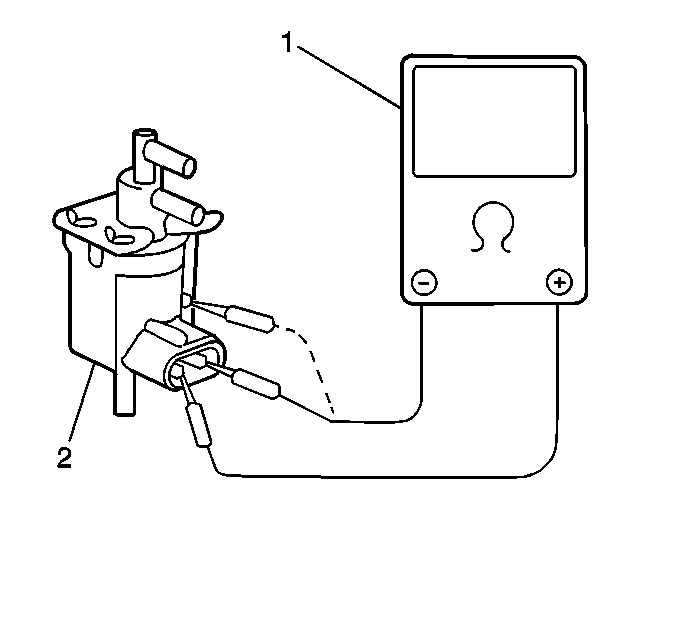
Measure
| • | Measure the resistance (1) of the EGR bypass valve terminals (valve side). The resistance should be 33-39 ohms at 20°C (68°F). |
| • | Measure the resistance (1) between the terminal (valve side) and the body. The DMM should read 1M ohm or higher. |
| • | Replace the EGR bypass valve if the resistance is not within the specification in either check. Refer to Exhaust Gas Recirculation Bypass Valve Replacement . |
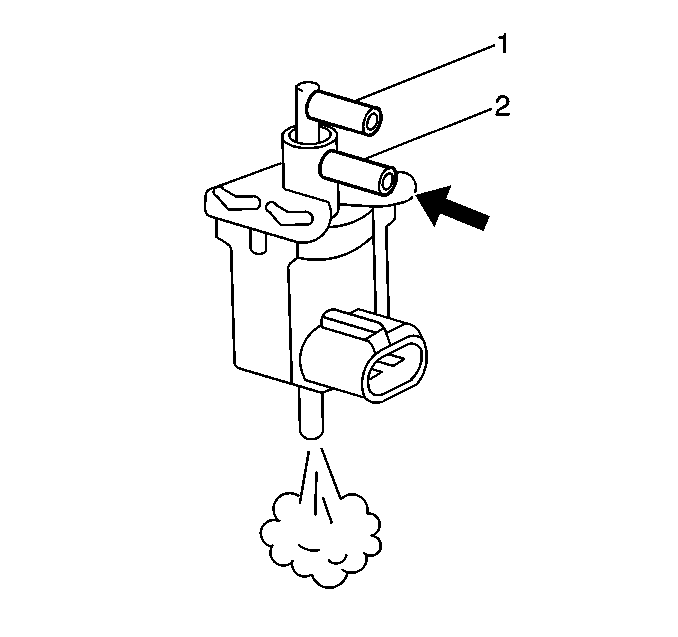
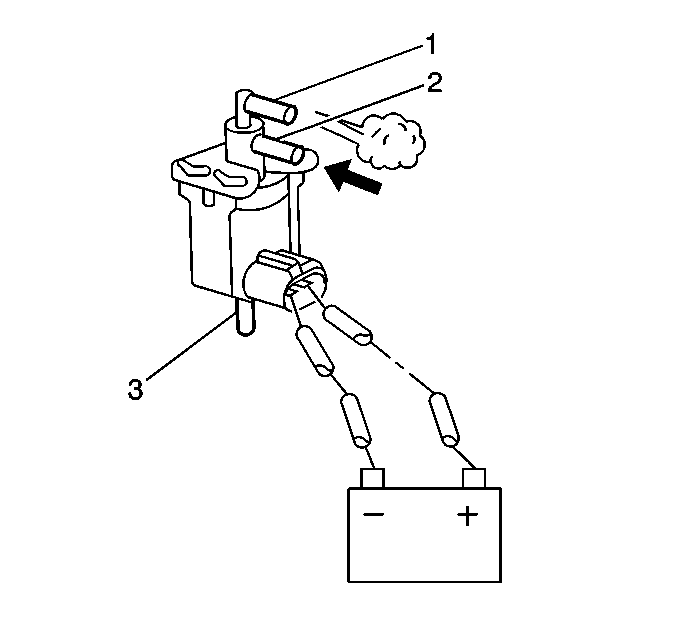
Replace the EGR bypass valve if the valve does not pass both flow checks. Refer to Exhaust Gas Recirculation Bypass Valve Replacement .
